Cork conference on coastal sustainability
Heath Kelsey ·Bill Dennison and I visited Cork, Ireland at University College Cork from March 26-28 to help facilitate a discussion among Regionals Seas Leadership, Future Earth Coasts, and United Nations Environment. Our goal was to help outline a new collaborative process to enhance the transition to more sustainable coasts.
Participants at the meeting acknowledged that progress toward true coastal sustainability is not being achieved quickly enough, despite successful pollution reduction and resource management implementation in many areas. For example, while Regional Seas organizations like the Mediterranean and the Baltic Seas have been making progress toward nutrient reduction targets, we all wish that progress could be faster. Other regions, like the Western Indian Ocean and the Caribbean, have been conducting meaningful assessments but would benefit from better collaboration between Regional Seas groups to make conservation happen faster.
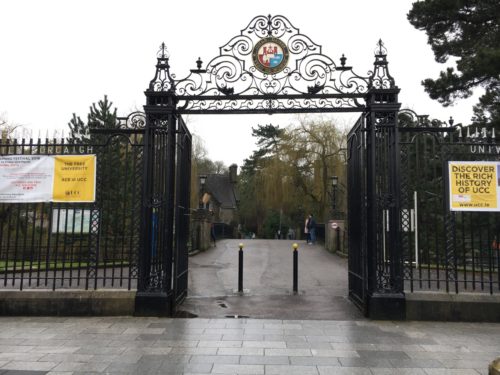
We strive to make our workshops fun, and our meeting in Cork began with a fun ice breaker as a way of introducing everyone. Participants split into pairs and sketched and interviewed each other before introducing their partner to the rest of the group and showing their sketch. This produced memorable biographies for all participants. My sketch ended up looking a little like a wanted poster.
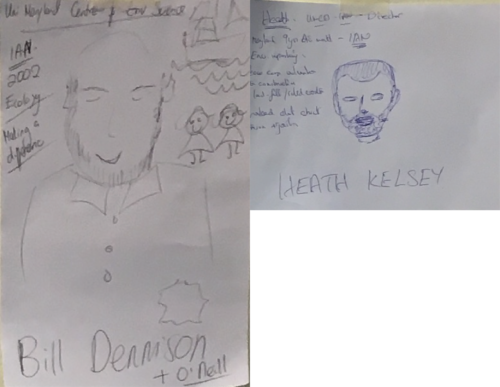
On Day 1, to set the stage, we heard from each of the groups represented (Baltic, Mediterranean, and Western Indian Ocean Regional Seas, UNEP Regional Seas Programme). Each group shared the work done in their particular region to foster greater sustainability. The content of the discussion was impressive: there is a tremendous track record of assessment and policy work done at the regional scale to conserve and improve coastal zones. However, these groups also acknowledged that the improvements that we all seek are not happening quickly enough, and that greater collaboration involving multiple sectors is necessary to approach sustainability. This supported the goal of our meeting to provide a forum for this type of collaboration. One way of creating and facilitating this collaboration is through a process developed by Future Earth Coasts called Our Coastal Futures. This process was described by the co-chairs of Future Earth Coasts Valerie Cummins and Bruce Glavovic.

To create a consensus driven pathway forward, we first used an activity called SNAP, adapted to solicit the greatest “barriers” to sustainability and then the most important factors that can lead to greater sustainability. We called these “enablers.” Participants voted on the top three most important barriers and enablers.
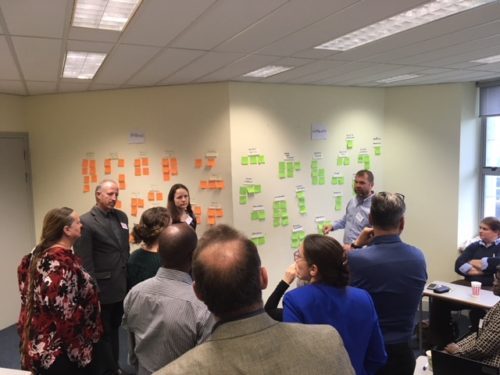
On Day 2, we focused on the outputs and outcomes of the meeting through storyboarding and beginning to populate our workshop newsletter. Armed with the priorities gained from the SNAP activity, we set participants to work to describe how Our Coastal Futures could provide the collaborative framework that could lead us to coastal sustainability, addressing the barriers and promoting the enablers that we identified earlier. After a productive conversation around the purpose of the document, we arrived at a consensus that the newsletter should focus on the framework of new collaborations through Our Coastal Futures, which could help us overcome the challenges faced at the regional seas scale.

On Day 3, we populated the document, revised our texts, and began conversations about specific activities that could be undertaken by the regional seas in collaboration with Future Earth Coasts. We ended with a draft newsletter that highlighted the need for these collaborative approaches, and identified how this type of engagement could be used in each region.
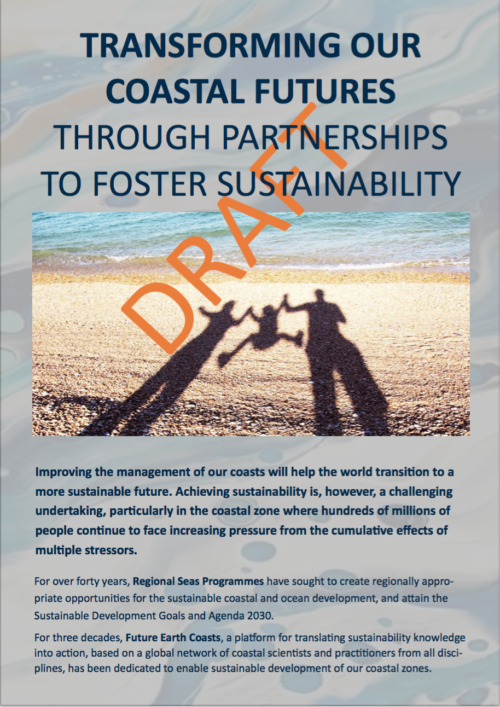
I think we accomplished our objectives for this meeting, which was to develop consensus around the need for new collaborative approaches to enabling coastal sustainability, like Our Coastal Futures, and begin fostering these relationships.
Cork was a great place to hold this meeting; University College Cork provided meeting logistical support and a nearby space that was perfectly sized and very functional. As usual, the best part of the meeting was the people we met; we feel lucky to have begun new relationships with diligent, hard-working colleagues from different parts of the world, all trying to make the planet a little better. I also found Cork to be a very friendly and walkable city, with lots of cozy restaurants, pubs, and shops. I look forward to visiting again, for both work and fun.

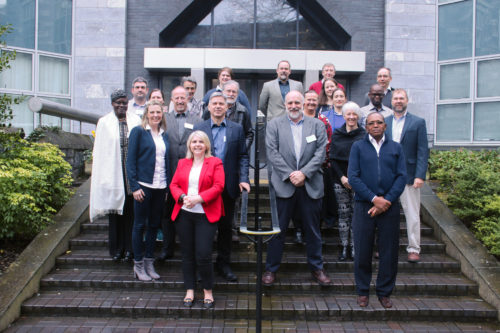
Meeting participants included:
Alice Newton, Future Earth Coasts Europe, University of Algarve, Portugal and NILU, Norway
Andrus Meiner, European Environment Agency, Denmark
Bill Dennison, Integration and Application Network, University of Maryland, USA
Bruce Glavovic, Future Earth Coasts co-chair, University of Massey, NZ
Dixon Waruinge, Wio Rs, United Nations Environment Programme, Kenya
Don Forbes, Future Earth Coasts Vice Chair, Bedford institute. Caccon, Canada
Elen Lemaitre-Curri, plan bleu, UNEP/MAP, France
Glenn Page, Sustainametrix, USA
Heath Kelsey, IAN, University of Maryland, USA
Helen Davies, United Nations Environment Programme, Kenya
Hester Whyte, Future Earth Coasts International Project Office, University College Cork, Ireland
Jeremy Gault, Future Earth Coasts International Project Office, University College Cork, Ireland
Joana Akrofi from United Nations Environment Programme, Kenya
Julius Francis, Wiomsa, Zanzibar
Kari Hyytiäninen, Bonus, University of Helsinki, Finland
Martin Le Tissier, Future Earth Coasts International Project Office, University College Cork, Ireland
Roxane Maranger, Future Earth Coasts Scientific Steering Committee, University of Montreal, Canada
Shona Paterson, Future Earth Coasts International Project Office, University College Cork, Ireland
Soile Oinonen, Helcom and SYKE, Helsinki, Finland
Val Cummins from Future Earth Coasts Co-chair, University College Cork, Ireland
About the author
Heath Kelsey
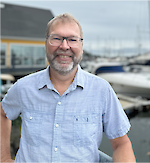
Heath Kelsey has been with IAN since 2009, as a Science Integrator, Program Manager, and as Director since 2019. His work focuses on helping communities become more engaged in socio-environmental decision making. He has over 15-years of experience in stakeholder engagement, environmental and public health assessment, indicator development, and science communication. He has led numerous ecosystem health and socio-environmental health report card projects globally, in Australia, India, the South Pacific, Africa, and throughout the US. Dr. Kelsey received his MSPH (2000) and PhD (2006) from The University of South Carolina Arnold School of Public Health. He is a graduate of St Mary’s College of Maryland (1988), and was a Peace Corps Volunteer in Papua New Guinea from 1995-1998.